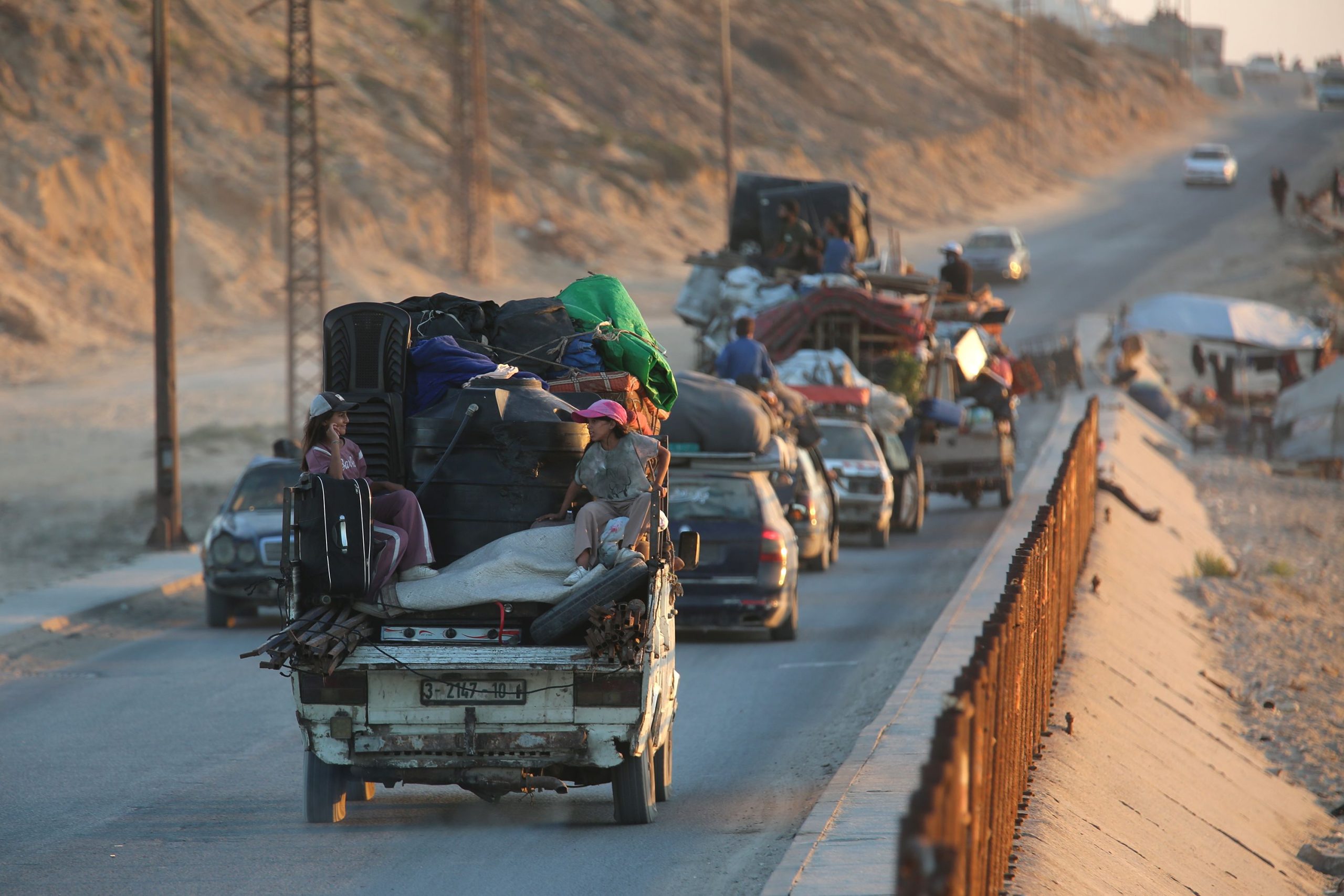The conflict in Gaza has once again reached a critical turning point. Israel has announced plans to end humanitarian airdrops before launching a new offensive into Gaza City, a move that has alarmed aid groups and the international community. The International Committee of the Red Cross (ICRC) has warned that mass evacuations are “impossible” under the current conditions, raising fears of a humanitarian disaster.
- Background: Escalating Violence in Gaza
- Israel’s Military Objective
- The Red Cross Warning
- Humanitarian Fallout
- International Reaction
- Political Ramifications for Israel
- The Dilemma of Urban Warfare
- The Human Toll: Voices from Gaza
- The Role of Humanitarian Organizations
- The Debate Over International Law
- Possible Outcomes
- FAQs
- Conclusion
The latest escalation highlights the harsh realities of urban warfare, the desperate situation faced by civilians, and the widening gap between military objectives and humanitarian imperatives. With international pressure mounting and thousands of families trapped in conflict zones, the decision to halt airdrops before an offensive is drawing scrutiny worldwide.
Background: Escalating Violence in Gaza
The Gaza Strip has long been the epicenter of the Israeli-Palestinian conflict. Over the past year, hostilities have intensified following deadly clashes and repeated military operations. Gaza City, the most densely populated urban center in the territory, has now become the focal point of the Israeli military campaign.
Why Airdrops Were Critical
- Israel had been conducting humanitarian airdrops to deliver limited supplies of food, medicine, and water to civilians.
- With Gaza under blockade and infrastructure destroyed, these airdrops provided a lifeline to many trapped families.
- Aid organizations stressed that while airdrops were insufficient to meet full needs, they were crucial in preventing mass starvation.
Now, with a new offensive looming, Israel has announced that these airdrops will cease.
Israel’s Military Objective
The Israeli government and military argue that halting the airdrops is part of their strategy to weaken Hamas and gain full control over Gaza City.
Official Justification
- Security Concerns: Israel claims airdrops could inadvertently aid Hamas fighters.
- Military Operations: Officials argue that continued aid delivery during combat operations complicates the offensive.
- Pressure on Hamas: By cutting supplies, Israel hopes to limit Hamas’s access to resources.
Israeli military spokespersons have emphasized that the offensive will be “precise” and targeted, but international observers fear the consequences for civilians could be catastrophic.
The Red Cross Warning
The International Committee of the Red Cross issued a stark warning in response to Israel’s announcement.
Why Evacuation is ‘Impossible’
- Infrastructure Collapse: Roads and transportation systems are heavily damaged.
- Medical Crisis: Hospitals are overwhelmed, making it impossible to move the sick and wounded.
- Civilian Density: Gaza City houses hundreds of thousands of people in cramped neighborhoods.
“The notion that civilians can safely evacuate before a large-scale offensive is unrealistic,” a Red Cross representative stated. “Without safe corridors and guaranteed protection, telling people to leave is essentially impossible.”
This warning reflects the growing humanitarian concerns tied to Israel’s operational choices.
Humanitarian Fallout
The end of airdrops is expected to intensify the suffering of Gaza’s civilian population.
Current Humanitarian Situation
- Food Shortages: According to UN estimates, over 70% of Gaza’s population faces acute food insecurity.
- Water Scarcity: Safe drinking water is nearly unavailable, forcing families to rely on contaminated sources.
- Medical Collapse: More than half of Gaza’s hospitals are non-functional due to bombardments and fuel shortages.
Stories from the ground reveal the desperation:
- A mother in Gaza City described having to feed her children with only bread and tea for days.
- Doctors say patients are undergoing surgeries without anesthesia due to medicine shortages.
- Families hide in bombed-out buildings, fearing both airstrikes and starvation.
Ending airdrops before a citywide offensive risks creating conditions of mass displacement, famine, and disease.
International Reaction
United Nations
The UN has urged Israel to reconsider, stressing that “civilians must never be deprived of essential humanitarian aid.”
United States
Washington, Israel’s strongest ally, expressed concern but stopped short of condemning the move. Officials called for “measured steps” to protect civilians.
European Union
EU leaders criticized Israel’s decision, warning that halting aid during an offensive may constitute a violation of international humanitarian law.
Regional Actors
Countries in the Middle East, including Jordan and Egypt, voiced alarm over the risk of a humanitarian catastrophe spilling across borders.
Political Ramifications for Israel
Israel faces a delicate balancing act between pursuing its military objectives and maintaining international legitimacy.
Domestic Support
Inside Israel, many citizens support tough measures against Hamas, believing that only force can secure peace.
Global Pressure
However, the international community is increasingly critical of Israel’s tactics, with rising calls for accountability and restraint.
Diplomatic Fallout
If civilian casualties surge, Israel risks alienating key allies and deepening isolation on the world stage.
The Dilemma of Urban Warfare
Urban warfare presents unique challenges. In Gaza City, densely packed civilian populations make military operations particularly deadly.
Challenges Faced
- Civilian Casualties: Urban density increases risks of high civilian deaths.
- Infrastructure Damage: Bombing campaigns destroy essential services like electricity and water.
- Guerrilla Tactics: Hamas fighters often embed within civilian areas, complicating Israel’s strategy.
Military experts argue that while urban offensives can weaken militant groups, they often leave lasting scars on civilian populations.
The Human Toll: Voices from Gaza
Beyond statistics, personal accounts reveal the human suffering:
- A displaced father said: “We have nowhere to go. They tell us to evacuate, but where? Every place is under attack.”
- A young boy described seeing his school destroyed: “I don’t want to fight. I just want to go back to class.”
- A doctor explained the trauma: “Children are coming to hospitals not only injured but deeply traumatized. Their lives will never be the same.”
These voices highlight why humanitarian groups insist that evacuation and aid must come before military offensives
The Role of Humanitarian Organizations
Humanitarian groups are scrambling to adapt to the evolving crisis.
Efforts on the Ground
- Red Cross and Red Crescent: Attempting to set up emergency medical stations.
- UNRWA (United Nations Relief and Works Agency): Delivering limited food parcels despite blockade challenges.
- NGOs: Local organizations providing psychological support for children.
However, without secure aid corridors, their work remains extremely limited.
The Debate Over International Law
The decision to end airdrops before a citywide offensive raises questions about compliance with international humanitarian law.
Key Legal Principles
- Protection of Civilians: International law prohibits targeting or neglecting civilians.
- Right to Humanitarian Assistance: Civilians must have access to food, water, and medicine.
- Proportionality: Military operations must avoid excessive harm to non-combatants.
Human rights groups argue Israel may be violating these principles by halting aid while preparing a large-scale offensive.
Possible Outcomes
Short-Term
- Intensified humanitarian crisis.
- Higher civilian casualties.
- Increased international condemnation.
Long-Term
- Further destabilization of Gaza.
- Strained Israel relations with allies.
- Greater radicalization and prolonging of conflict.
FAQs
Why is Israel ending airdrops before the Gaza City offensive?
Israel argues that halting airdrops prevents aid from reaching Hamas and simplifies military operations.
What does the Red Cross mean by saying evacuation is impossible?
The Red Cross highlights damaged infrastructure, lack of safe corridors, and overwhelming civilian density, making evacuation unrealistic.
How will civilians be affected by the end of airdrops?
Civilians may face worsening food shortages, lack of medicine, and increased risk of death during the offensive.
How has the international community reacted?
The UN, EU, and regional states have criticized the move, while the U.S. has expressed concern but avoided direct condemnation.
Could halting aid before an offensive violate international law?
Yes. Denying civilians access to essential humanitarian assistance during conflict could breach international humanitarian principles.
Conclusion
Israel’s decision to end Gaza airdrops before launching an offensive on Gaza City, despite Red Cross warnings, represents one of the most controversial moments in the ongoing conflict. The move highlights the collision between military strategy and humanitarian obligations, raising profound ethical and legal questions.
While Israel frames the decision as a necessary step to weaken Hamas, humanitarian groups warn of devastating consequences for civilians. The coming days may prove decisive, not only for Gaza’s population but also for Israel’s standing in the international community.
In the end, this moment underscores a painful reality: in modern warfare, the greatest casualties are often not the fighters but the civilians trapped in the crossfire.








